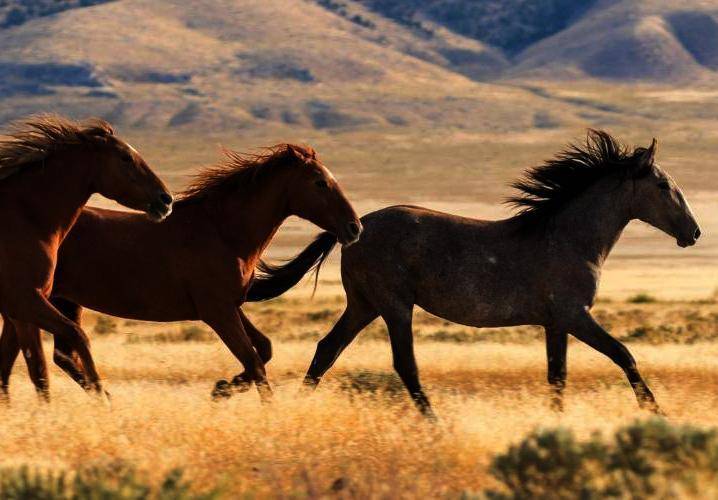By Julene Reese
In partnership with 20 organizations and agencies, Utah State University Extension co-sponsors the 4th Free Roaming Equids and Ecosystem Sustainability (FREES) Summit Oct. 12-14 in St. George, Utah.
Summit participants, representing over 60 organizations, along with public stakeholders, will convene to receive updates on free-roaming equid policy, management and science. The summit also provides an opportunity for dialogue about how to best partner and collaborate on achieving the sustainable management of healthy wild horse and burro herds on rangelands.
According to Terry Messmer, Utah State University Extension wildlife specialist and a summit co-chair, organizers hope the summit can lead to new partnerships where people can share their values and ideas to develop innovative, beneficial solutions for equid populations.
Messmer said there are currently approximately 300,000 free-roaming equids in the United States on public, tribal, private and federal lands.
“In areas where herd sizes exceed the range-carrying capacity, wild horses and burros are at increased risk of death from dehydration, starvation and vehicle collisions,” he said. “And when there is an overabundance of free-roaming equids, there are also impacts to the overall health of the U.S. western public rangelands. FREES aims to enhance communication and engage diverse stakeholder groups in meaningful dialogue as they work to achieve equid and ecosystem sustainability.”
The conference is held at the Hilton Garden Inn in St. George. For registration information, click here or visit https://tinyurl.com/yhj7xa57.
Further information about the FREES Network and resources can be found at: https://extension.usu.edu/freesnetwork/ and https://extension.usu.edu/freesnetwork/resources.
Information about human/wildlife interactions is available at: https://digitalcommons.usu.edu/hwi/vol12/iss1/.
Additional sponsors include Utah’s Public Lands Policy Coordinating Office, the USU Berryman Institute, the Quinney College of Natural Resources, the Nevada Section Society for Range Management, Botstiber Institute for Wildlife Fertility Control, the Coalition for Healthy Nevada Lands, the Public Lands Council and others.

